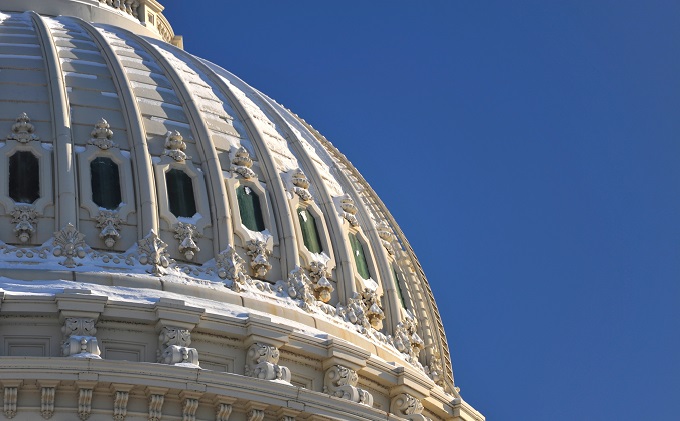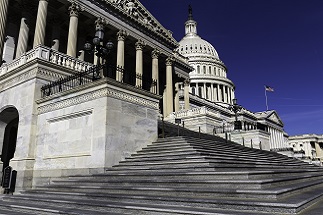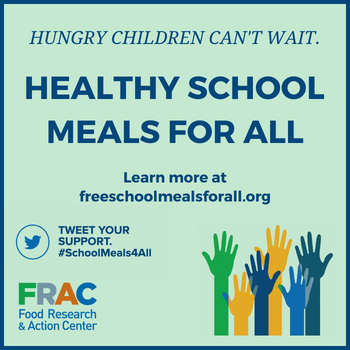Farm Bill News & Developments
The 118th Congress is underway, and critical pieces of legislation are now being introduced. Check out:
- FRAC’s Bills We’re Supporting page for key bills introduced in the 118th Congress related to SNAP.
- Visit FRAC’s Road to the Farm Bill page to learn more about the farm bill process, priority SNAP legislation, and how to get involved.
- The 2023 Farm Bill presents an important opportunity to strengthen SNAP benefit adequacy and equitable access. Read FRAC’s legislative priorities for the 2023 Farm Bill.
- Utilize this Joint Statement by National Organizations and Farm Bill Stakeholder Groups in Support of the Supplemental Nutrition Assistance Program (SNAP), signed by nearly 225 national organizations and entities, in your Farm Bill advocacy to protect and strengthen the program.
Looking for the latest information from FRAC on the coronavirus? Our COVID-19 page has all the updates.
Current SNAP Legislation (118th Congress, 2023-2024)
- H.R.1510 – Improving Access to Nutrition Act of 2023H.R.1510 – Introduced on March 9, 2023 by Reps. Barbara Lee (CA-12) and Alma Adams (NC-12).
What it does: Ends the three-month time limit on Supplemental Nutrition Assistance Program (SNAP) benefits for certain unemployed and underemployed adults who do not document sufficient hours of work each month.
Resources: Read FRAC’s H.R.1510 fact sheet. Use FRAC’s customizable email template to urge your Members of Congress to cosponsor the bill.
Previous SNAP Legislation (116th Congress, 2019-2020)
- H.R.1368 - Closing the Meal Gap Act of 2019H.R.1368 — Introduced February 26, 2019 by Representative Alma Adams (D-NC) and 104 original co-sponsors.
What it does: Increases benefits for all SNAP participants by basing benefits on the Low Cost Meal Plan instead of the Thrifty Food Plan; increases SNAP benefits for families with children with high shelter costs by removing the cap on the SNAP shelter deduction; raises the SNAP monthly minimum benefit to $25; removes additional SNAP eligibility requirements for full- and part-time students enrolled in an institution of higher education and students responsible for the care of disabled members of households; and authorizes a SNAP Standard Excess Medical Deduction for persons who are elderly or have disabilities (with a minimum standard of $140). See the co-sponsors.
About the 2018 Farm Bill:
The 2018 Farm Bill, signed into law on December 20, 2018, is a comprehensive piece of legislation that authorizes most federal policies governing food and agriculture programs, including SNAP – the nation’s most critical anti-hunger program. Read FRAC’s analysis and statement of the final bill.
FRAC’s 2018 Farm Bill Resource Toolkit includes FRAC’s statements and analyses of the bills, links to the committees’ text and resources, SNAP support letters from advocates across the country, a Farm Bill Primer, and interactive mapping tools to find SNAP data for your state and community.
Advocacy efforts at the state and local level have been critically important in strengthening and safeguarding federal food and nutrition programs. Use the resources below to urge your Members of Congress and the Biden administration to enact these critical pieces of legislation.
Take Action

Take the SNAP Challenge
Download our toolkit on starting a SNAP Challenge, which includes guidelines and activities.
Invite Your Member of Congress to be a SNAP Caseworker
Download FRAC's guide on inviting your Member of Congress to be a SNAP caseworker.

Farm Bill 2022 Priorities
Explore FRAC’s latest resources on the Farm Bill:
Farm Bill Primer
Farm Bill Priorities: Congress Must Protect and Strengthen SNAP and Other Anti-Hunger Programs



